|
The world is filled with extremely frustrating, nonsensical situations that seem to be out of the control of a single person. This new section’s purpose is to allow the release of that frustration. I call it the “Bug Letter.”
The Bug letter is a way to let the organization creating the situation know that we take issue with some obscene, absurd, illogical rule or process they have in place. Very rarely does it produce a result other than allowing the author of the Bug Letter to feel some modicum of control. The receiver reads the letter and most of the time, squashes it like an unwanted bug. Hence, the Bug Letter. DATA vs. NOT DATA DATA Dear AT&T wireless, I have an unlimited talk, text, and DATA plan. Two days ago, I received a text (for free) that I reached my max of high-speed data limit, and until next month’s billing cycle, my data speed would be slowed down. I called and spoke to a representative who told me that not all data is data. I asked what data is not data. He replied that he didn’t know. He looked up my plan and agreed that it was for UNLIMITED TALK, TEXT, and DATA. I asked if the plan mentioned anything about data and not data data. Silence. I asked for a supervisor. He didn’t know either. I scoured the internet on my desktop to give AT&T the benefit of the doubt. My phone data was too slow. I found nothing that differentiated data from not data. Until you can explain the difference between data and not data data, please stop throttling my not data since it also throttles my distinctively different DATA. Sincerely, Unlimited Frustration. While writing these letters doesn't always get a response, it does feel good to know that someone has to read it at least once. If you have a “Bug Letter” you would like to submit; please send it to me for next month’s newsletter.
0 Comments
Some may think I have lost my ability to edit proficiently. I have not.
Recently, I was made aware of a strange creature that lurks in big and small cities and even skulks on the very streets we live. It has been spotted at the grocery store, on our sidewalks, and in automobiles. The Professional Tortest seeks opportune moments to strike, lying in waiting for just the right circumstance before making its move. This creature has only one goal: to cause grief to those it can take by surprise. Its physical appearance can vary from short and portly to tall and lean. The most horrible thing about this real-life beast is that we don’t notice its presence until it’s too late. The psychiatry world calls this creature the “Hyperlitigious Litigant.” This predator continually sues unsuspecting companies and individuals. Whether for fun, for power, or for income, varies by the beast. I’m not talking about attorneys. This predatory looks like an ordinary people but, in reality, this creature is constantly on the search for, or the prospect to create, situations that cause it to obtain “injuries.” These injuries are both real or fictitious. Either way, they are self-inflicted. The creature then seeks medical attention, immediately followed by legal counsel. It does this periodically and can have multiple cases at the same time. The legal community refers to this predator’s behavior as “Vexatious Litigation.” If you feel you have been preyed upon by one of these creatures, all hope is not lost. My research into this behavior has found that these creatures have specific characteristics that can be identified (AAPL article listed below): · Initiates dozens or hundreds of suits. · Has a life that revolves around the development and progress of litigation · Is not deterred by repeated negative outcomes. · Files suits that are trivial or unfounded. · Invests great amounts of time in litigation. · Is a known and persistent presence for lawyers, judges, and clerks. Rest assured that attorneys and insurance companies are aware of these creatures. Still, mentioning this phenomenon to those representing our interests is warranted if we feel something is awry. This piece is not meant as legal or psychiatric advice but as a warning about a herd of predatory creatures that may be lurking in our neighborhoods. Beware the Professional Tortest who lies in wait. Sources: http://jaapl.org/content/45/1/62 https://en.wikipedia.org/wiki/Legal_opportunism https://en.wikipedia.org/wiki/Vexatious_litigation The power of the word is not to be taken lightly; I veered away from this axiom, but now it feels like a vulture circling above me. I must address the beast or be devoured by it.
We, humankind, now face a challenge that stirs many emotions at the mere mention of its name. COVID and it's little, more lethal sibling, Delta Variant, are here, and we have a viable defense against it. But the use of the written and spoken word has created such doubt that soon the viral beast will be atop the food chain. Perhaps this is the way it has always been. Maybe history has it wrong and the dinosaurs fell victim to a similar tiny monster. Either way, we must fight back to preserve the human race. The growing vaccination conflict is often compared to the war against seatbelt laws; it’s not the same. If you didn’t wear a seatbelt, you would only hurt yourself. Not getting vaccinated puts everyone in danger. Vaccines have been questioned since they were first introduced in 1798 (smallpox vaccine). They were perceived as witchcraft or the devil's work, yet they still are used today to protect people worldwide. Why is this vaccine different? Here are only some theories that seem to make the distinction.
Let’s look at each one of these points. Edward Jenner’s smallpox vaccine was given to ONE thirteen-year-old boy to show immunity against the virus. It is the mainstream treatment against smallpox. The vaccine was met with fear and condemnation for many reasons, but as word spread that a “cure” for the ravenous disease was available, doctors used it without question, and patients accepted it. In total “transparency”, we were told that the COVID vaccine was new and something never tried before. This scared a great many people. There have been many medical breakthroughs in the last decade alone; why is the advent of an mRNA life-saving vaccine so different? The answer is simple. The world has grown smaller and information is at our fingertips and is shared over platforms that are not consistent in distinguishing opinion from fact. This can lead to misinterpretation and increase fear of the unknown, While the death of patients injected with vaccines has occurred throughout history, the numbers are minuscule compared to the overall benefit. Usually, they involve unknown allergies to agents within the vaccine, contamination, or other health factors. This theory is like citing the dangers of dying while flying in an airplane. The notion that the COVID vaccine doesn’t really work is based on a certain number of people who recover from the illness without the vaccination. In statistical data, there will be outliers; those who do not conform to the results of the information being compiled. They are the few and far between. The real question is, do you want to take the chance that you are an outlier and don’t need the vaccine? I add the last bullet to show the true power of words. I have been unable to find credible evidence linking tracking devices to the vaccine. That’s what cell phones are for… (just a bit of conspiracy humor). All vaccines have been met with fear and negative propaganda, but none have been so derided as the current one. There have been numerous pro and anti-vax articles published in the last year. I urge you to read those posted by reputable sources before making a choice. Here is a final thought. The Delta variant is a more efficient killer, similar to chickenpox before we could control it. As the COVID virus (Delta variant) continues to thrive, it will continue to mutate. The next variant, let’s call it Epsilon, might be resistant to the current vaccine and more contagious or deadly than Delta. Do we want to take that chance? For the history buffs: This is the shot heard only halfway around the world. Put down the pen, stop the words and get the vaccine, please. Additional sources: https://www.immune.org.nz/vaccines/vaccine-development/brief-history-vaccination https://www.nytimes.com/2021/04/28/opinion/vaccine-hesitancy-smallpox.html https://www.wpr.org/surprisingly-controversial-history-seat-belts There are those times when the idea for a compelling blog escapes me. So, I scour my mind and fish through the past month of my life, trying desperately to find something to type into a stimulating blog. Finally, I hit the news outlets thinking, what can I riff on?
I played such a game with this month’s blog. I asked myself, “Why? I never run dry of oddball angles to look at things.” The truth is I did come up with several ideas; they just didn’t pan out to be worthy enough for a blog. While running myself over with the proverbial bus the evening before last, I came upon an old article about The Seinfeld Show that described it with a very fitting blurb. “Much About Nothing.” The piece raved about how the show was a success about nothing and how it caught the voyeuristic eye of the world. The Seinfeld Show ran for about nine years, from 1989 to 1998. That’s nearly twenty-three years ago. Fast-forward to today and take a look at what fills the small screen. We have elevated the “much about nothing” element to a new level called “reality TV.” We devour every moment of peeking into the lives of ordinary people. The networks see this thirst and amp up the drama. Perhaps this makes us feel better about our own lives or at least steals us away one hour at a time. Let’s go one step further; the internet has ridden this wave with immense success. Twitter, Instagram, and the Generation Z to Alpha population’s favorite pastime, TikTok, exploit the “much about nothing” concept. These social media platforms capitalize on the human urge to watch from a distance and still feel connected. Following strangers or digital friends as they go to the grocery store, put on make-up, or allow us to view whatever it is they do, seems creepy if we examine it in this context, but it sells. That takes us to the final part of Much About Nothing. This misnomer is the cloak that hides the reality that much about nothing is hiding the millions made from human nature. Those who are successful in front of the lens of television and social media get paid well. Both avenues have their own way of measuring success before the dollar is doled out, but the ultimate goal is currency. Is this a new concept created by Larry David and Jerry Seinfeld? To answer that question, we can look back to Mr. Shakespeare. William Shakespeare’s Much Ado About Nothing is a play that lets us view how deception plays out in everyday life, how relationships are comical and messy. Sounds just like reality TV or social media. Perhaps Shakespeare was well ahead of his time. He may be watching now and saying, “I knew it!” It seems that our voyeuristic tendencies may have begun somewhere in our distant past and continues to evolve. Whatever the reasons, each of us chooses what we watch and why we watch it. I include myself in the collective. Without judgment, just observation; “Much about nothing,” in reality, is “Much about something.” I hope you enjoyed this view of nothing. Please send me your thoughts and comments. There is a growing trend in the consumer market that bigger is better. The spread of larger and still larger has leaked its way into almost every corner of our world. I recently noticed a virtually unchanged commodity getting caught up with this need for the gargantuan.
This realization began in the powder room on the first floor of our almost100 year-old home. The toilet paper dispenser is a tile inlay installed when standard, was not Mega, Super Mega, or Ultra-Super Mega. It is increasingly difficult to find quality toilet paper rolls in this smaller size. I became aware of the increase in toilet paper roll size just before the pandemic. During the pandemic, the shortage of toilet paper sent manufacturers into a tailspin and the onslaught of oversizing began. Perhaps toilet paper manufacturers are trying to accommodate us by keeping up with the fast-food industry. The larger the portions of fries, the higher ounces of soft drinks, the more we have to… you get the idea. This appears to be a logical conclusion and we might want to thank them for their thoughtfulness. A closer look reveals that the manufactures of toilet paper may not be so altruistic. The cost of cardboard increased by approximately 22% in 2021. This is mainly due to the increased cost of wood pulp which is used to make cardboard. So, let’s do the math. Double, triple the size of the number of sheets of toilet paper on a single roll and use half, to a third, of the cardboard. The sheets were going to be produced to meet the need, so why not make the rolls bigger and cut down on the need for the cardboard roll? Rebrand the label to make the consumer think they are getting more, up the price because, after all, the rolls are giant, and save a fortune on the cardboard. Now let’s look at it from the consumer’s point of view. We are conditioned to believe that bigger is better. But there is another factor that rolls around in the back of our minds. Convenience is the key here. Larger rolls mean less frequent trips to purchase toilet paper. The rolls are enormous, so walks to the linen closet, reaches behind to the tank, and bends into the bathroom cabinet are fewer. But here is the biggie that manufacturers are counting on. The visual effect and the thought of more sheets on a roll unconsciously allow us to pull more sheets during each use. We use more, we buy more, and their profit margin grows. During the height of the pandemic, toilet paper sales spiked 845%, Soaring to eleven billion dollars for 2020. That’s a lot of pennies saved on those cardboard rolls. Here is another thought to sit down and think about, pun intended. The increased use of TP causes increases in carbon emissions and the need for more trees to be sacrificed. Both points boost global warming and are harmful to our planet. I have included a link to a Newsweek article below, but be forewarned; there is a great deal of butt talk in it. Will we see the return of the smaller roll? Only time will tell. I believe the Mega, Super-Mega, and Ultra-Super-Mega rolls are here to stay, so if you’re remodeling your bathroom, you may want to consider installing a large paper towel dispenser instead of a toilet paper one. Size does matter. How many of you can remember the name of the man shown in the photo, the brand he advertised, and the slogan he used? Please let me know your thoughts and answers. Sources used: https://www.newsweek.com/amplify/heres-what-roll-toilet-paper-does-environment-finding-best-eco-friendly-alternative https://www.nysscpa.org/news/publications/nextgen/nextgen-article/cardboard-box-prices-soar-040121 https://www.businessinsider.com/why-toilet-paper-demand-spiked-845-how-companies-kept-up-2020-5 https://www.wsj.com/articles/americans-have-too-much-toilet-paper-it-is-catching-up-to-companies-11618306200 It May be a Hazardous Idea to Travel
Earlier this month a discussion took place with a few friends that sparked this May mind mayhem blog. We threw around the concept of traveling backward or forward in time to meet our past and future selves. There was the usual casting out of ideas of what to say or advice to give to the other versions of ourselves. It became very chaotic until one the friends, unfortunately not me, suggested that we take each time travel concept separately. Man ... can go up against gravitation in a balloon, and why should he not hope that ultimately he may be able to stop or accelerate his drift along the Time-Dimension, or even turn about and travel the other way. -H.G Wells We started with going back in time. If we could, how would we advise our younger versions. The obvious money and wealth solution poured into the room, winning lottery numbers, winning sporting events, and the alike. This was followed by career choices and the making of different decisions to get on better paths. The final big push was relationships and family advice. On a lesser scale were health habits and where to live. I should add in, that at some point just after the reorganization of how to think about all of this I made the decision to listen more than speak. There were more interesting thoughts running through my mind that we will get to shortly. “If we could travel into the past, it's mind-boggling what would be possible. For one thing, history would become an experimental science… -Carl Sagan We then moved to the thought of contacting our future selves. The room became a bit quieter. I began to speak. “When it comes to the future versions of ourselves, we would not be giving advice on how to move ahead. They already know the past, and the present and what is our future until the point at which we made contact. So, we would become observers. Perhaps, the reverse would take place. Our future selves would advise us on making financial choices, career choices, retirement choices, relationships and so on. The already quieted room became deafly silent as the notion of being schooled by our future selves sank in. I continued. “We chose to go back in time first and try to change what our younger versions will do, so our present selves will reap the benefits. That would alter our present-day selves. We might not even be friends or we could be enemies. The trajectory of each of our lives would be different from the point we told our younger versions to alter course. If we still chose to visit the future, after all the changes, we would see a totally different future version of ourselves. This in turn, might want to make us go back to the past again and try to tweak things.” There was immediate chaos again as six friends began to talk over one another to get conquering and conflicting points of view across. After several minutes of mind bending, one friend looked in my direction. “You opened this can of worms so what would you do?” The laying out of my ideas didn’t come with a formulated solution, so I sat for a moment, then smiled and began my answer. “Just so we all understand, the ability to time travel is not yet possible, but let’s go with the notion it is.” I admit, I was stalling to build the drama a tad. “Going to the past, I could correct some of the major mistakes in my past, but that might lead to worse mistakes. As for going to the future, there would be no changes I could make to the future version of myself. We all realized the reality that our future versions already know all we know. What we didn’t say was that by going to the future and observing it, we return to the present with knowledge that causes us to alter our present time choices. This leads to a different future than the one we visited. So, we would spend all of the time going back and forth trying to insure the best outcomes. This makes the assumption that we, as our present selves see ourselves as the most superior of the three versions. What if the past and future versions are thinking the same way and doing the same thing. Imagine a limitless number of versions of each of us hopping through time trying to make change after change. That would be chaos at an unconceivable level. I guess I’m saying that I wouldn’t time travel. It would be futile. In the end I have to play the cards I’m dealt, whether I was trying to be the dealer or not.” The general consensus agreed that it would become a never-ending loop. On the matter of weather to time travel or not, that was split down the middle. I hope you enjoyed this little adventure into the what if of time travel. Let me know what position you would take by clicking the button below and adding your response. April has inspired me to step out of my comfort zone and post a poem that came to me in the middle of the night. I usually don't write poetry, nor would I dare to post it if I did. But, since NOW came to me that way it did, I felt the need to share it.
NOW In this tower I sit, watching the world fall apart, bit by bit. One against the other, the fight goes on, brother against brother. On the TV, on the internet, can’t turn away from the growing threat. Try to sleep at night, wake up exhausted from an imaginary fight. No one will ever win, when did love become so thin? Have we reached the end? We will break if we don’t bend. Turn away from the hate, this is a must, before it’s too late. If there’s still a chance, we have to choose to take a stance. Deep inside there lives a light, one that says, stop the fight. Love cannot be stripped away, we need it to find peace some day. Leap across the angry sea, recreate a world of tranquility. Take this stand together, choose love, make the world better. Please let me know your thoughts. The advent of technology has brought about a new way we read books.
WWW is flipping more than the pages of the book world. The online industry capitalized on this tech with the creation of the e-reader. Another change brought about by this electronic innovation is the ease of self-publishing. There are new positives and new pitfalls that every author must navigate in this digital world. What follows is merely the tip of an enormous iceberg. Here are some critical points in the history of book publishing:
Modern technology takes over from here.
In actuality, the first e-books were produced in the 1970s, but they didn't gain popularity. In the year 2000, Steven King's novella, "Riding the Bullet" was turned into an e-book and sold over 400 000 in the first twenty-four hours. This caused two things. First, it crashed the servers, solidifying the new e-book industry. Second, there is now a cheaper and unique way to sell books without a large warehouse. As time has moved forward, so has technology. The e-reader has replaced the physical book, both paperback and hardcover. There are those of us, myself included, who still like the feel and the smell of a new book in our hands. It saddens me to say that we are the dinosaurs. The e-reader manufacturers often improve the tech on these devices, whereas the physical book industry may have peaked. I am not talking about the book's content, rather how the book itself could advance in its ability to accommodate. E-readers can magnify, bookmark, and dim or brighten, all to the reader's personal preferences. No physical book can do this without tremendous reproduction expenses. This has made the end-user experience nearly infallible. Switching gears, let's talk about the author's perspective. A positive to the e-book industry is the advent of self-publishing, on-demand changes to the e-book, and the ease of making different electronic versions to fit the different types of e-readers. The two most common versions are Epub and Mobi. I make this point for reference only as free programs will convert from pdf to one or the other. Self-publishing has many options, both good and bad. Beware author; the scammers are plenty in number. They run the gambit from editor to publisher. I should also note there are as many honest book industry professionals out there. Use the internet and fellow authors to do your research. Publishing has taken on a new dimension in the e-book world. A new player has entered the game. Here are some of the names it goes by vanity publishers, hybrid publishers, indie publishers, or small press publishers. Just like with self-publishing, be wary of who you make a bedfellow. Traditional publishing is still alive, and the need for a good agent is paramount. The internet has made the search for the stellar agent easier. Today, with a few clicks, we can read what an agent is looking for and how to submit to them. It used to be that the traditional publishers handled all the expertise on the bookselling end, no so today. The savvy author must know the industry and be an active participant. From writing the book to publishing, advertising, and tracking sales, the author must be ever vigilant. My advice is: Don't Go It Alone. Links supporting this blog: https://www.quora.com/How-long-did-it-take-a-monk-to-copy-the-Bible-in-the-middle-ages https://www.history.com/topics/inventions/printing-press https://sfbook.com/the-evolution-of-the-book.htm#:~:text=Gutenberg's% 20invention%20of%20mechanical%20moveable,than%2020%20million%20books%20produced. How many friends do you have? As a novelist and blogger, this question is put to me over and over. I'm always puzzled by what the question means. I have many friends that I have never physically met, and then I have a handful that are the old-fashioned, face-to-face kind.
During the early days of humanity and perhaps for a long time after, friends were limited to the distance they were willing to walk to visit each other. The dangers of walking from one village to another made friendship-building difficult. Many people were limited to those who lived in the same village. Making friendships outside the village's protection was deliberate and made out of necessity for trade, alliances, and peace. Thus, the Friend-Necessity model was born. The advent of transportation, from the chariot to the airplane, gave way to long-distance travel. The Friend-Necessity type of alliance could now be made across large land masses and oceans. For centuries the model has been used to prevent wars. 1876 saw the creation of an invention that gave the Friend-Necessity model its next great leap. The telephone permitted people to escape the limitation of physically being present or having to send a possibly misinterpreted letter. The telephone allowed the Friends-Necessity model to expand without the use of an emissary or travel. In 2004, Mark Zuckerberg changed the definition of friends forever. Facebook took friendship and made it limitless. The physical boundaries were obliterated and anyone could be a friend to anyone else, anywhere. But more importantly, and for the first time in history, the Friend-Necessity model had direct competition on a world-wide scale. Zuckerberg brought about a new concept: The Friend– Commonality model. Whether conscious or not, he even used the term "Like." The idea was ingenious because it played on the insecurities of people. Everyone wants to be "Liked," and everyone wants to have friends. Other social media platforms have followed Zuckerberg's ingenuity. Twitter and Instagram used the term "Followers." Linkedin seems to have stayed with the older, more established, Friends-Necessity model, using the word "Connections" and a focus on necessary alliances. Now don't get me wrong, I don't think this is a bad thing. Facebook, Twitter, Instagram, and even Linkedin have created a world that has been able to tie people together in a multitude of ways that the Friend-Necessity model alone could never accomplish. Are there aspects of the Friend-Necessity model in the social media mindset, of course? Social media has surpassed the basic premise of let's be friends because it's good for both of us. There was an underlying principle in Zuckerberg's idea. It has an inherent trust built-in. Making a friend that is just a friend implies a level of trust exists. Recent light shed on international cyber hacking has created complications for the Friend-Commonality model regarding trust. Widespread distrust and misuse of social medial is a sign that the Friend-Necessity model is still very powerful. It has also brought to light that both models fall prey to abuse and deceit. It's up to us to understand that both models are essential and serve a function. The Friend-Necessity model is eons old, and the Friends-Commonality model is a much-needed alternative. We all use components of each in creating our friendships. Now we just know it. Please let me know your thoughts. I thought I would start 2021 with a bit of satire for your enjoyment.
Some of you may have seen this piece posted on social media about a week ago and think that I’m “phoning it in” for this month’s blog. I assure you I’m not. The responses to this piece of writing were all across the board, from thumbs up to birds being flipped at me. And that’s just the emojis. Some people did take the time to write raving reviews, while other chastised me. I do feel that there was some merit to the piece as it generated such a response. It was meant to be a poke at the state of the union and not a malicious attack on anyone. The purpose of satire is to bring awareness to grave or inconceivable circumstances through the use of a ridiculous and perhaps obscure situation. In this case, my implications were not so subtle. None-the-less, the point must have been made. The Whistleblower Washer I’m speaking out today because I’m tired of being the bad guy . For safety reasons my face has been hidden. We washers are not to blame for your missing socks. Conspiracy theorist have tried to dampen your view on us. Telling you we stole socks and now they can’t have the socks they want. This is just not true. We Washers have tried countless time to unify with the dryers for a common good, but they are hell bent on causing havoc. In the recent years, through a single leader, many brands of dryers have begun to unite and plan a siege on human clothing. You’ve heard their motto: “Make clothes Great Again.” These power crazed groups are planning, with leading Russian, Chinese and North Korean dyers, to control the world’s ability to have dry clothing. They will make you submit to wearing wet clothing then blame us, the washers. Humans, stand up and do the right thing! Put the hate-mongering dryers in their place and let’s work together to keep clothing dry and clean for all. Please let me know your thoughts. |
Author's Quote:"Writing is the flow of life through words on a page. We all have this talent to share." Luca DiMatteo For the latest blog, please sign up for my monthly newsletter.
Archives
August 2022
|
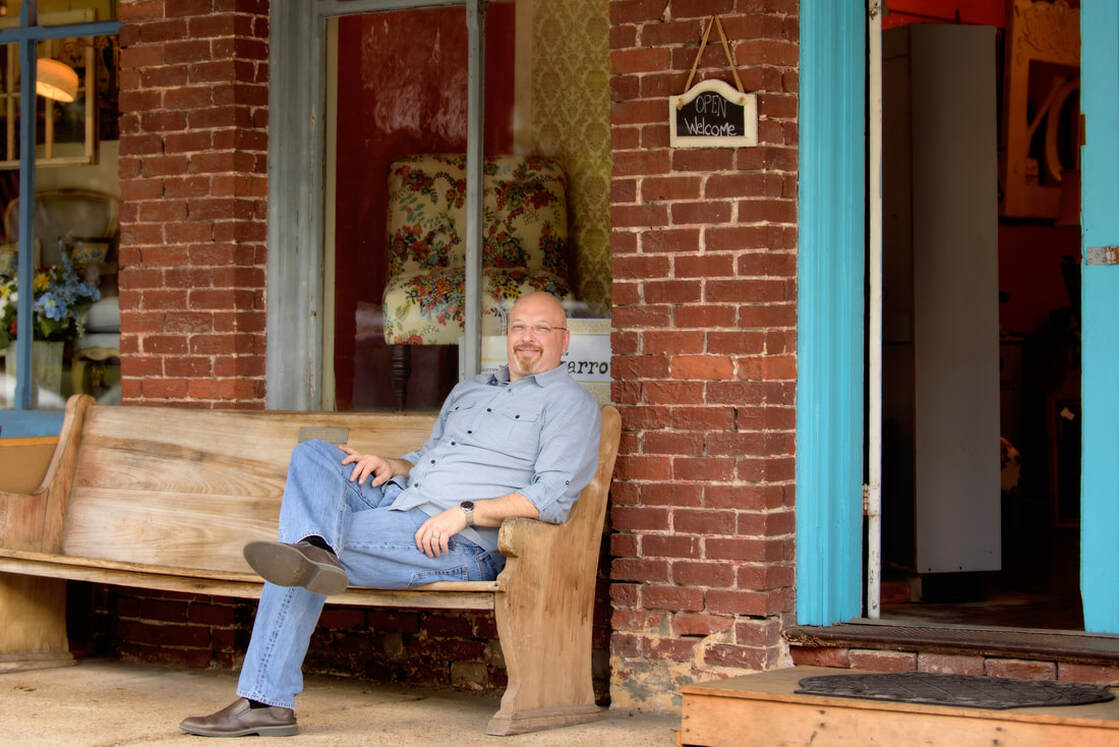
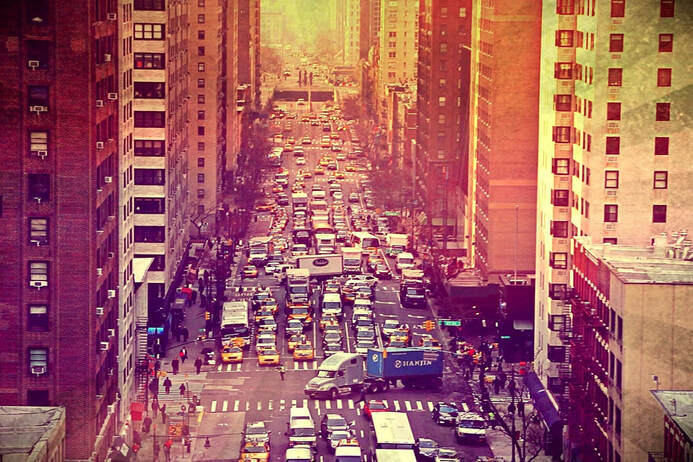


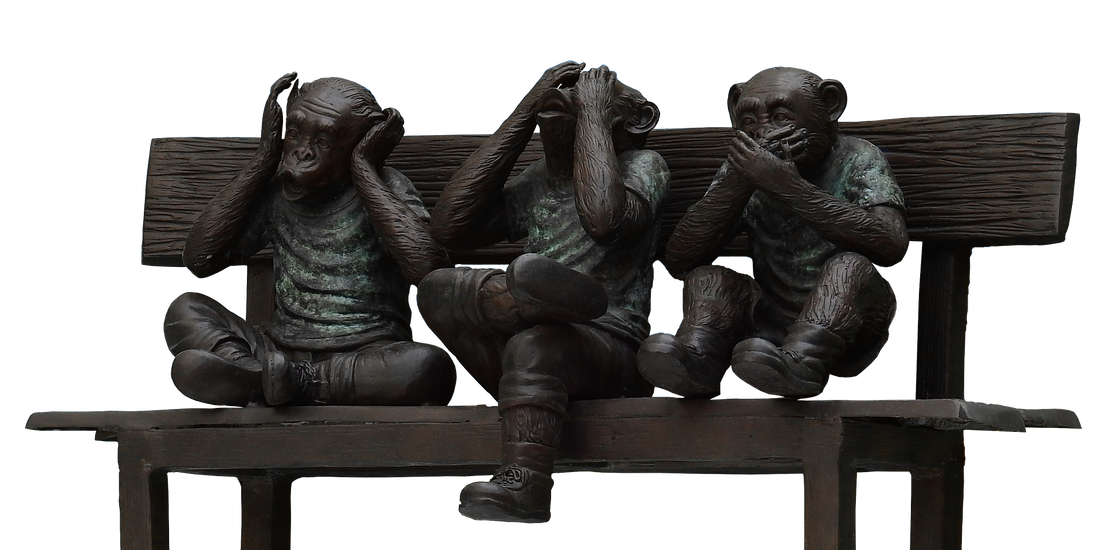
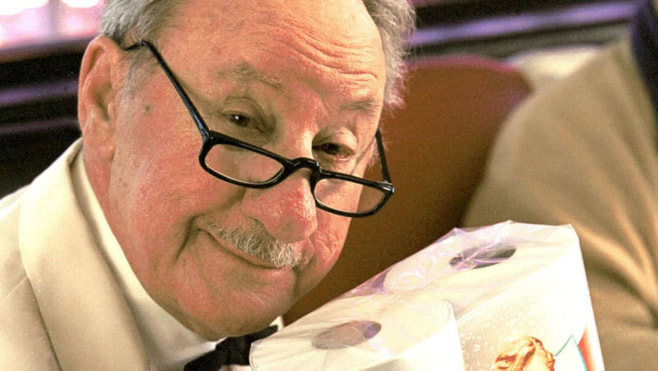
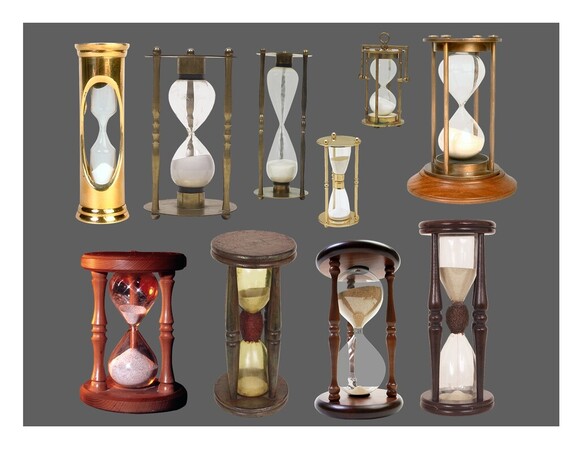


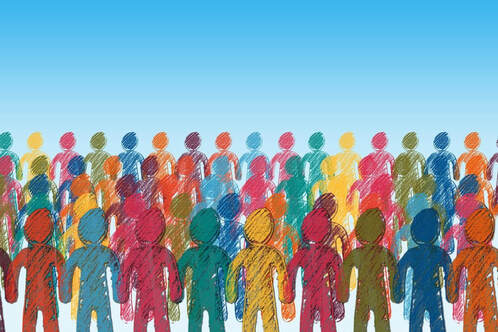
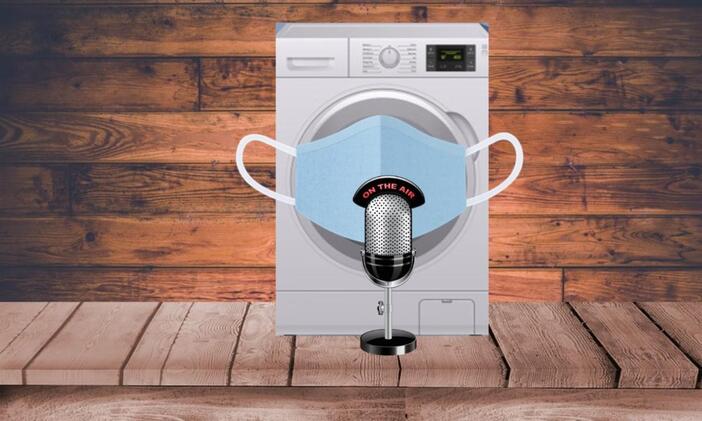
 RSS Feed
RSS Feed